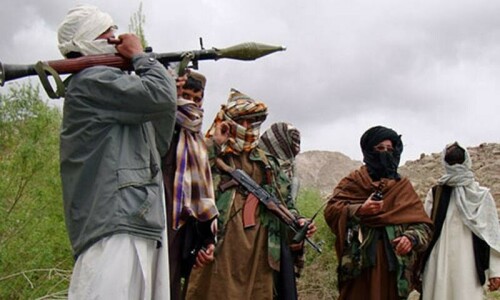ISLAMABAD: The government has almost finalised Textile Policy 2020-25 with cash subsidies and lower rates on utilities to boost production of textiles and clothing in the country.
The draft policy has already been submitted to the prime minister secretariat after which it will submitted to the cabinet for approval, Dawn has learned from knowledgeable sources on Tuesday. The last textile policy was announced in 2014 by the-then textile minister Abbas Khan Afridi.
The proposed package carries special duty-drawback rates, rationalisation of duty on textile value chain and subsidy on long-term loans and development subsidies.
Under the policy, it has been proposed to provide electricity at 7.5 cents for the textile sector, followed by RLNG at $6.5 per mmBtu and domestic produced gas at Rs786 per mmBtu. The policy aims to reduce the input cost of textile and clothing sector and make it competitive with the regional players.
It has also been proposed to continue the cash subsidy package for the value-added sector at the prevalent rates. The government had earlier announced special duty drawback rates of four per cent for garments, 3pc for made-ups and 2pc for fabrics under the PM’s package.
In the first two years of the scheme, the government has doled out an amount of Rs97 billion to the industry.
It has been proposed to extend the scope and disbursement amount of Long-Term Financing Facility (LTFF) along with increasing project limit. More products will be brought under the ambit of LTFF while increasing the outstanding limit to Rs200bn from current Rs140bn.
The mark-up rate for the Export Refinance Scheme (EFS) of the State Bank of Pakistan and LTFF will be proposed to maintain at current position.
The policy also proposes to simplify the temporary importation schemes — Duty and Tax Remission for Export and bonded warehouse. It has also been proposed to establish three more garment cities in the country to promote the export of value-added textile products.
According to the policy, more garments cities can be established after consultation with relevant stakeholders. The focus of the policy is to enhance the productivity and competitiveness of the sectors.
Moreover, new effluent treatment plants will be set up in addition to announcement of a brand development scheme. The government will offer incentives for international buying offices opening their offices in the country.
Under the policy, incentives will be offered to encourage women employment in the textile and garment sectors. Moreover, labor laws will also be reviewed to facilitate women’s entry into the job markets.
The policy will also provide assistant for skill development, dedicated textile exhibitions, establishment of world textile centres, weaving city, incubators, apparel house, and mega textile awards.
Published in Dawn, November 11th, 2020

















































